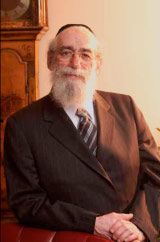O’Hear, Twerski, and the Work of the Professoriate
 Professor Jessica E. Slavin recently posted concerning Professor Michael M. O’Hear’s well-deserved receipt of the Eastern District of Wisconsin Bar Association’s Judge Robert W. Warren Public Service Award. Through the resources available to me as dean, I have been able to secure a copy of Michael’s brief and well-stated acceptance remarks. Professor O’Hear describes his basic belief that law schools can act as “bridge builders” — first, “between, on the one hand, the world of legal practice, judging, and lawmaking, and, on the other hand, the world of rich and diverse learning contained in the modern university” and, second, between “the local and the national” (the latter being, Professor O’Hear notes, “a two-way street”).
Professor Jessica E. Slavin recently posted concerning Professor Michael M. O’Hear’s well-deserved receipt of the Eastern District of Wisconsin Bar Association’s Judge Robert W. Warren Public Service Award. Through the resources available to me as dean, I have been able to secure a copy of Michael’s brief and well-stated acceptance remarks. Professor O’Hear describes his basic belief that law schools can act as “bridge builders” — first, “between, on the one hand, the world of legal practice, judging, and lawmaking, and, on the other hand, the world of rich and diverse learning contained in the modern university” and, second, between “the local and the national” (the latter being, Professor O’Hear notes, “a two-way street”).
These remarks bring to mind — but are not identical to — somewhat more pointed comments delivered by a renowned Marquette lawyer, Aaron D. Twerski (pictured above), who is the Irwin and Jill Cohen Professor at Brooklyn Law School (and former dean at Hofstra). Twerski is an extremely well-regarded law professor (as is O’Hear, although they are at different points in their careers) and received the prestigious Robert C. McKay Law Professor Award from the Tort Trial & Insurance Practice Section of the American Bar Association. Professor Twerski used the occasion of his award to lament the seeming lack of interest of many law professors in saying things of interest to judges and practicing lawyers.
Among his milder comments:


